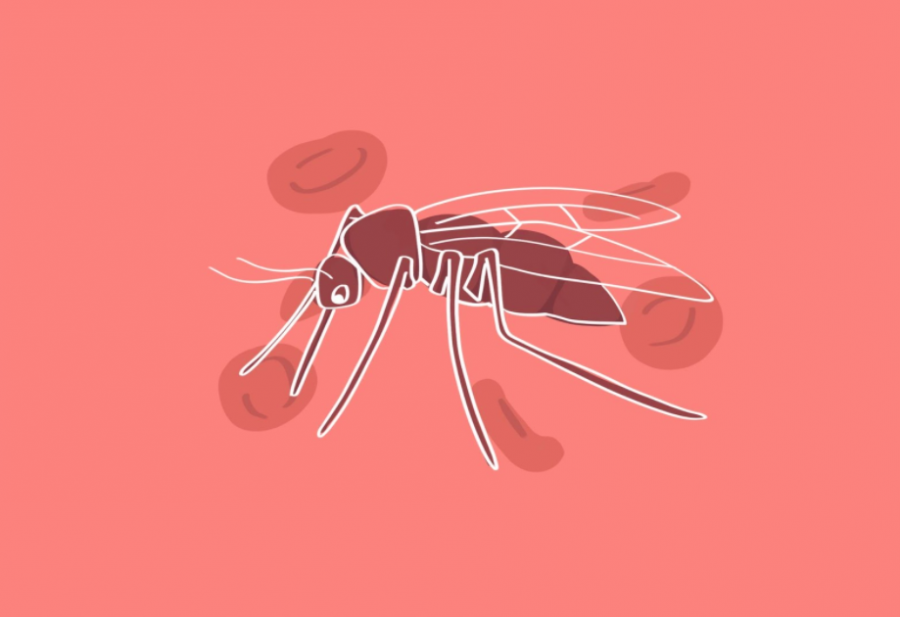The Malaria Vaccine: The Solution to a Century-Long Struggle?
While COVID-19 is still ravaging the world, other diseases have not halted their destruction. Malaria kills 500,000 people every year, 67% of them being children under the age of 5. For those of us who live in a developed country far from the massive Malaria epidemic in the region of Africa, its detrimental effects can be easy to forget.
Malaria is a mosquito-borne disease, initially causing flu-like symptoms (nausea, fever, headaches). There are five different Malaria-causing pathogens. The most lethal of them is the Plasmodium falciparum. Infection starts with a simple mosquito bite. It releases sporozoites, tiny spores, into the bloodstream which multiply and cause damage to red-blood cells and other organs. In severe cases, the disease can lead to seizures, difficulty breathing, and even brain damage. Malaria also affects the emotional and economic lives of families. As Bello Abdul Hakeem Bolaji, a Nigerian who grew up in the midst of the Malaria epidemic, described it, “Malaria has two outcomes: death or poverty.” Families who are unable to afford treatment helplessly watch their children die, and families who pay for treatment are doing so at the expense of their businesses.
Now, there may be hope on the horizon. The World Health Organization endorsed the first ever Malaria vaccine at the start of this month. Dr. Pedro Alfonso, director of WHO’s Global Malaria Program, described this as “a historic event” for researchers. The world of science has worked towards a vaccine against Malaria for over 100 years. This vaccine is the first to protect against a parasitic disease. This is a milestone as the vaccine is more complex than antiviral and antibacterial vaccines. It is, however, important to note that pilot programs in Kenya, Ghana and Malawi by the company GlaxoSmithKline –the producer of the Malaria vaccine– show that the vaccine’s efficacy is only at 50%.
Nevertheless, the vast extent of the Malaria epidemic means that even a vaccine with low efficacy could prevent thousands of cases and deaths. Experts like Dr. Mary Hamel, who is leading WHO’s Malaria vaccine implementation program, expect to see a difference, estimating the prevention of 5.4 million cases.
The Mosquirix Vaccine
Four doses of the Malaria vaccine, also called the Mosquirix vaccine or RTS,S vaccine, are to be administered to children from 5 to 18 months of age. In sub-Saharan Africa children suffer an average of 6 Malaria episodes every year, even when taking preventative measures like using bed nets. The Mosquirix vaccine is significant because it will be able to reach many children who have not had access to other precautionary measures. Although one may be skeptical of the vaccine’s effectiveness, studies show that, paired with antimalarial drugs, the treatment can reach an efficacy of an impressive 75%.
What now?
Patrick Duffy, a scientist at the Laboratory of Malaria Immunology and Vaccinology at the National Institute of Allergy and Infectious Diseases, is aware that the vaccine by itself will not solve the problem. Researchers are continuing to look for different, more effective vaccines. Fortunately, the implementation of the RTS,S vaccine will be a game-changer in the meantime. GlaxoSmithKline, has agreed to sell its vaccine at a low price, receiving only 5% profit. The vaccine is still awaiting government approval, but the endorsement of The World Health Organization certainly gives them a strong push. Sadly, the pandemic has delayed Malaria vaccine distribution efforts and averted attention from epidemiological crises like this one. Regardless, the approval of the Mosquirix vaccine has moved the world forward in the struggle against Malaria. A disease that has caused death for millions of years may be finally coming to an end.

Jade-Sophie, an IB senior, is excited to be returning to the Banner as a Science and Tech editor this year. It is her second year writing and she can’t...



